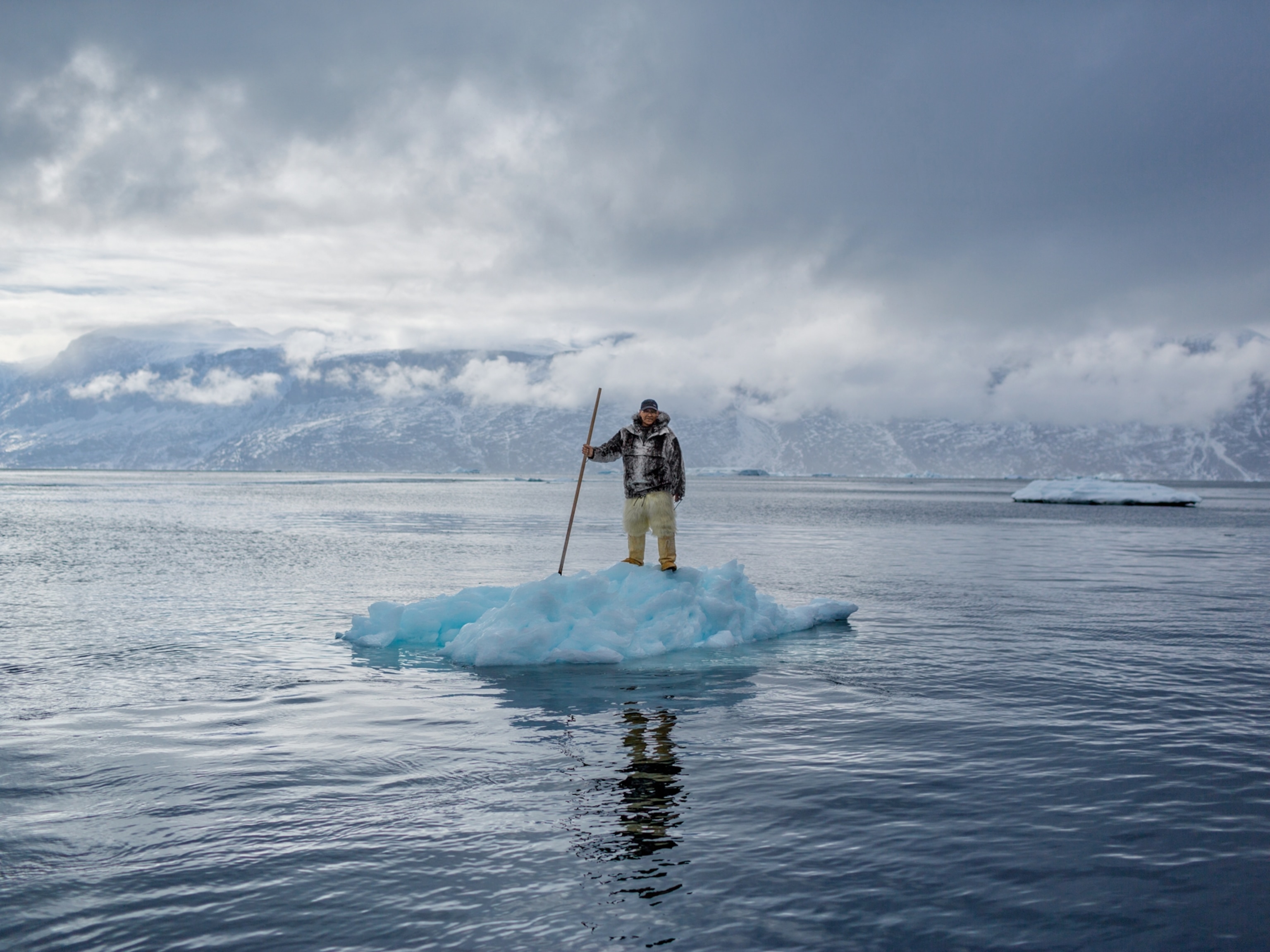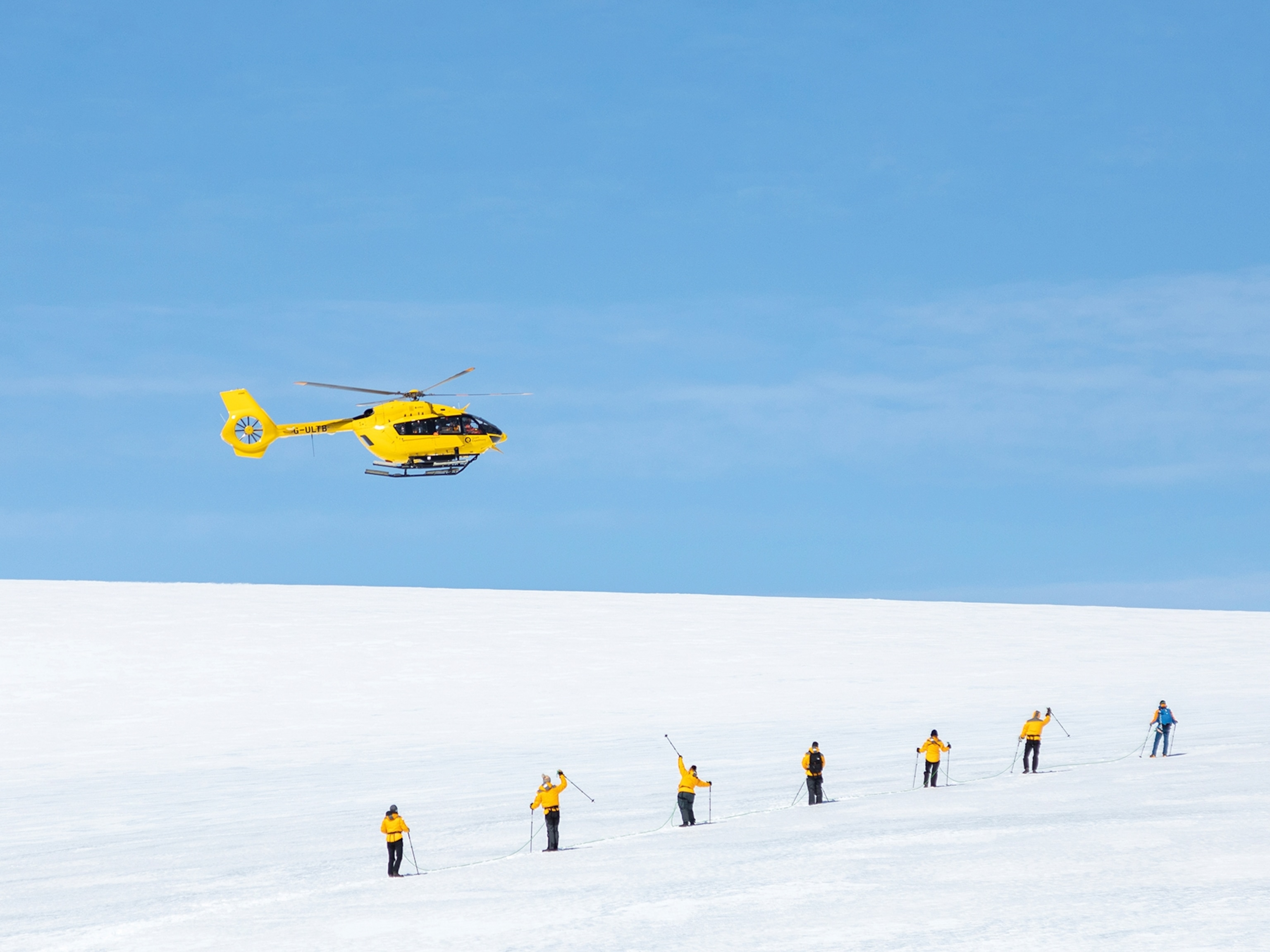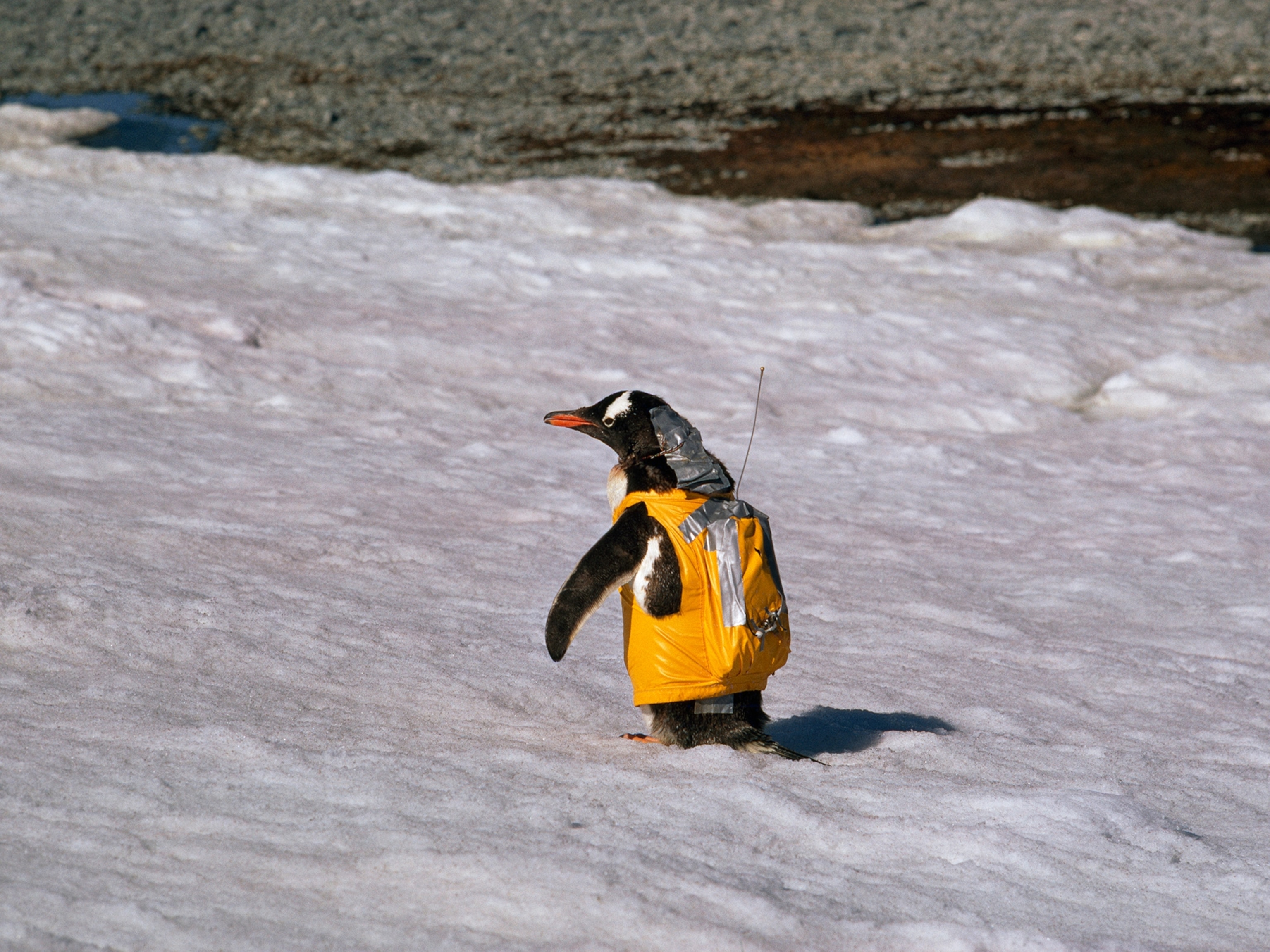Couple Flies Small Helicopter Over the Atlantic to Record Melting Ice
The newly married pair was both awed and surprised by Greenland's calving glaciers.
“Usually if it's been done, I'm not too interested in it.”
That’s according to National Geographic explorer Eddie Kisfaludy, a marine biologist, pilot, and extreme data collector. With his company SciFly, Kisfaludy gathers data from some of the most intense and remote environments on the planet. He gives that data to people who need it, like the scientists and government agencies making decisions that impact our planet.
Last year, when Kisfaludy and his then fiancée, now wife, Amanda Kisfaludy, went to London to buy a new helicopter for SciFly, they had to figure out how to get their new ride back home to their headquarters in San Diego.
“Now, there's two ways to go about doing that,” says Eddie Kisfaludy. “You can put it in a shipping container and send it back. Or you can fly it across the North Atlantic.”
As the crow flies, a commercial airliner could make that trip in about half a day. But the couple decided to take a month and travel 8,000 miles in their tiny helicopter over some of the most remote regions on Earth, while capturing stunning images of the landscape along the way.
Greenland was the most difficult leg of the trip to plan for, but in spite of that—in fact because of that —it was the part of the adventure that excited Eddie Kisfaludy the most. But when he arrived, what he saw was as troubling as it was beautiful. (See how Arctic ice is melting.)
We spoke with Eddie Kisfaludy about his trip.
You were excited for this whole trip but you had a special affection for Greenland. Can you tell us why?
Planning for this trip, Greenland was totally mysterious. All I could really tell is from looking at satellite imagery of the island and seeing these long fjords covered with this turquoise-blue water, with icebergs everywhere. It looked like a place I'd never been. The unknown to me was the most attractive part.
Why isn't there more information or footage of these areas?
It's really hard to get to. If you can get there, the weather is usually horrible. There is a low-pressure system that sits south of Iceland, halfway between Greenland and Europe, that swirls bad weather constantly. We got really lucky because of how perfect the weather was.
Tell us about what you saw in Greenland.
The most awe-inspiring thing we saw was big calving events by glaciers. It is absolutely quiet, then all of a sudden you can hear the ice start to fall apart, and it sounds just thunderous. You can't help but realize that Greenland is melting. (Learn about how the ice can be saved.)
And as we're flying, we look down at these melt pools, where we see water pooling up and it disappears down a hole. It’s the most beautiful blues I have ever seen—brilliant, turquoise pools of water. But they absorb heat. The more melt pools you have, the quicker Greenland is melting. As Greenland melts, you have to wonder where is all this water going? It's going right into the ocean.
How did you feel flying over places that might not be there much longer?
Watching an entire island melt in a way that is unprecedented makes you realize that we are in a very fragile place. It's important for us to be able to capture images of an area that is so unique, a place that is so difficult to get to, to help inspire people about what climate change really is.
What else can Greenland tell us about the global climate?
Because the atmosphere of Greenland is so clean you can think of the ice cap as a huge filter, where it'll catch dirt, dust, or debris in the atmosphere; it's going to settle out onto the snow. The biggest source of carbon in the world is from burning fossil fuels and as that goes up in the atmosphere. It's settling out in the ocean but also in Greenland, into the ice. This has been going on for a very long time.
Geologists can go up, drill down, and they can see how the carbon levels have changed in the world over time. You can see when there were big asteroids that hit the planet or a volcano erupted. The ice has this record.
Greenland is on the forefront of climate change. We need to understand what is going on up there so we can make better decisions for our planet. Our planet depends on the science that is happening up in Greenland. (See what would happen if all the ice melted.)
This interview has been edited for length and content.




